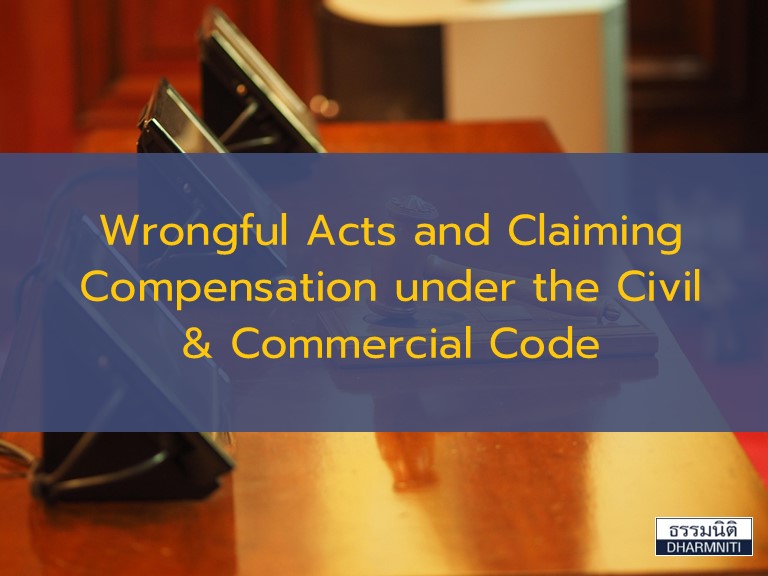After a company limited is legally formed, its shareholders or directors may wish to change its name for any number of reasons such as for branding purposes, to reflect a change in ownership or because the name is unsuitable or outdated. Before taking such a step, the shareholders and directors of a company should be mindful of several important matters including the process to implement such change as well as other tasks that will need to be done following the name change process. This article shall provide a general overview of the name change process (according to Thai law) as well as other relevant matters which the company’s key stakeholders should consider.
Company Limited Name Change Process
For a normal company limited with no specific name change restrictions in its Articles of Association, the process to amend its name is as follows:
Step 1 – Reserve the new company name at Department of Business Development (DBD). To do this, the company will need to provide both Thai & English spelling of the new company name. If a proposed name is already taken or deemed unsuitable then it shall be necessary to choose an alternate name.
Step 2 – Holding of a Board of Directors meeting to call the shareholders meeting where the name change resolution shall be voted on by the company’s shareholders.
Step 3 – Holding of a general meeting of shareholders to amend the company name change. Such meeting shall require invitation letters be mailed out to the shareholders and a newspaper advertisement must be published in advance of the shareholder meeting too. The shareholder meeting shall need to cover the following agenda items and pass resolutions to implement the following:
1) Amending the memorandum of association (company name);
2) Amending the company seal (if the company has a seal); and
3) Amending the company articles of association.
Step 4 – Thereafter, it shall be necessary to update the DBD regarding changes made at the shareholder meeting.
Note: Before starting the process it would be sensible for the company secretary to check the company’s articles of association and any shareholder agreement to see if they contain any specific provisions relating to company name changes.
Following the company’s name being formally amended at the DBD, there are several other follow-up changes which the company may also need to make with respect to this change, these are as follows:
Internal Company Changes:
If a company legally changes its name then it shall be necessary to amend its stationary to reflect the new name. Moreover, if it has work rules then these should be revised to reflect the new name of the employer. If the company has a company seal then this shall need to be adjusted to reflect the change.
Online Presence
If the company has a website or social media accounts then these will need to be adjusted to reflect the change. To avoid confusion, the company may also need to do extra marketing to ensure that its customers/ clients are aware of the change.
Work Permits & Dept. of Employment
If the company has work permits issued to non-Thai employees then it shall be necessary to submit an application to this department to have such work permits updated to reflect the name change.
Banking
Commercial banks where the company has accounts will need to be updated of the name change. Banks will likely request various official documents to evidence this change such as an updated version of the Affidavit of Company Registration.
Social Security & Revenue Department
The company shall need to update the Social Security Office and the Revenue Department of the name change so that they can be duly aware. If the company is registered for VAT or Specific Business Tax (SBT) (if any) then a new VAT certificate (form PorPor20) or SBT certificate (form PorTor20) (if any) will need to be issued in the new name of the company.
Licenses & Permits
If the company has any official Government licenses or permits such as a foreign business license, hotel license, alcohol license, recruitment license, factory license or an import/export license etc then the issuing authority shall need to be contacted so that such permit/ license can be re-issued in the new name of the company.
Assets & Registration
If the company owns any assets such as real estate, shares, vehicles or property which is formally registered then it should approach the registering authority to amend its name on the ownership documents. For example, if the company owns real estate (land) then it should approach the relevant Land Dept. office to have its title deed amended to reflect the name change.
Impact on Contracts
The company should check its contracts with external parties to see if an official name change shall impose any contractual obligations on it or if such a change is not permitted under any agreements it is a party to.
Share Certificates & Share Register
Although not ordinarily necessary, the company may wish to amend its share register book and share certificates to reflect the company name change. In such case, it would be advisable to have the company pass a board of director resolution to approve this change, moreover the company should get back the old share certificates from the shareholders so that they can be reissued with new share certificates.
Dharmniti Law Office Co., Ltd.
2/2 Bhakdi Building 2nd Floor, Witthayu Road, Lumphini, Pathumwan, Bangkok 10330
Tel: (66) 2680 9777
Fax: (66) 2680 9711
Email: ryan@dlo.co.th or chalapunj@dlo.co.th




 Except where otherwise indicated, content on this site is allowed to be used under
Except where otherwise indicated, content on this site is allowed to be used under